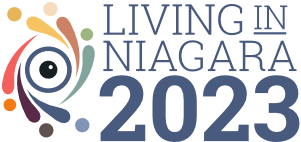A region that offers many opportunities for its citizens to learn and engage in education provides a measure of the health of the area. Work, creativity, prosperity and health are all linked to education and literacy. Building a strong learning community in the Niagara region will help our citizens to have the skills to deal with change and to create positive change together.
What we are doing well …
Niagara is well served by its many schools, learning institutions and organizations that offer literacy, education, skills development, professional development, English as a Second Language (ESL) training and learning opportunities for those in Niagara and for those who come for an education to our region. The contributions of Brock University, Niagara College of Applied Arts and Technology, Niagara District School Board and Niagara Catholic School Board to the education of children, youth and adults of our area make an important investment in our people and our future.
Where we can improve …
Our region needs to work on improving literacy levels across all parts of the region, so that all our citizens can be employed, earn a living wage and be able to function well and safely in our society. Like other areas in Canada, our region needs to boost our literacy levels, especially for immigrants and aboriginal people. While Niagara rates are higher than Ontario for high school completion and trades certificates, significantly fewer people in Niagara report having completed a university education. The region’s rate of high school completion is comparable to other cities and higher than the Ontario average. However, completion of a high school diploma is not uniform across all parts of the region. Access to the internet from home, work and the library is increasing, but Niagara is still slightly behind in overall internet access compared to other parts of Canada.
Overall score: Level 2. Of concern, needs attention.



